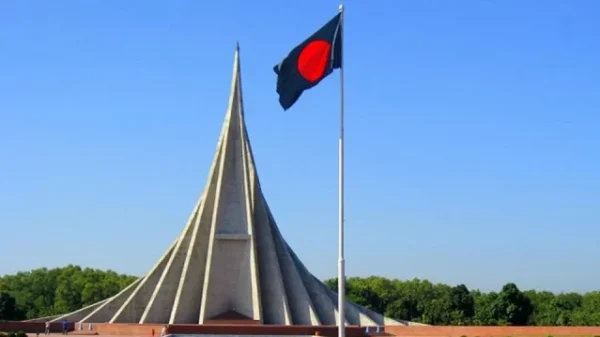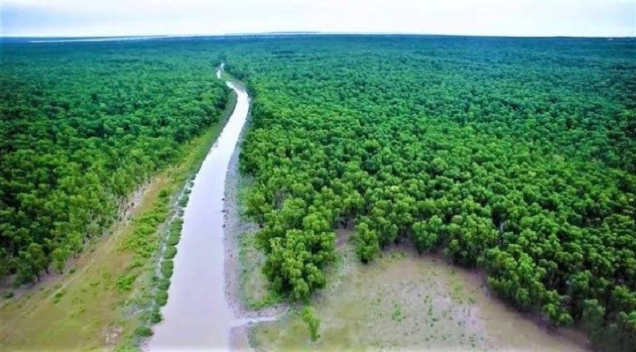Staff Reporter:
The Sundarbans once again has stood as a shield, protecting a large part of Bangladesh from the devastation of Cyclone Remal, which began on Sunday evening before turning into a land depression on Monday morning.
The cyclonic struck the southwestern coastlines of Bangladesh, spanning 200 kilometers from the Khepupara coast on the right to Satkhira and another 200 kilometers on the left to Barishal-Patuakhali with pounding winds, torrential rains, and inflating sea waters, causing tidal surges as high as 6 to 10 feet.
Remal has caused the loss of many lives, flooded villages, uprooted trees, damaged homes and croplands, and washed away fish enclosures.
Experts said that the amount of devastation left by the cyclone would have been much higher if the Sundarbans had not been there as a barrier.
Director of Bangladesh Meteorological Department Md Azizur Rahman said Sundarbans and its surrounding areas were comparatively less affected due to forestation but the areas with fewer trees like Barishal and Patuakhali incurred more damage and loss.
“The forest has been defending Bangladesh steadfastly offering its open chest to the fury. The Sundarbans receives injury but helps weaken the wind speed to a large extent,” he said.
The Sundarbans did what it could to protect the country. At least 10 people lost their lives when trees and houses fell on them. The number of causalities would have been hundreds if the Sundarbans had not been there, he said.
It is evident that the mangrove forest has played a significant role in reducing the loss of life and property when cyclones hit the coastal areas of the country.
By creating a barrier against storm surges and high winds during hazardous times, the Sundarbans has mitigated the impact of such natural disasters, added the government official.
Before Remal, storms like Sidr, Aila, Bulbul, Amphan, and Yaas are among the recent cyclones were intercepted by the largest mangrove forest in the world, spanning an area of 6,000 square kilometers on the Bangladesh side.













































